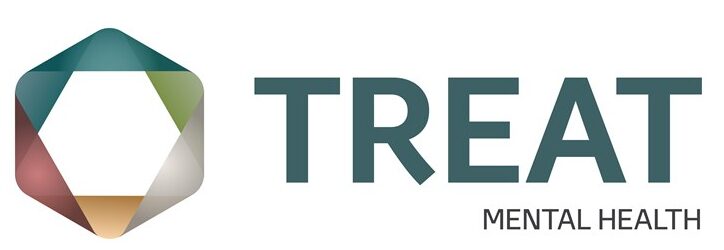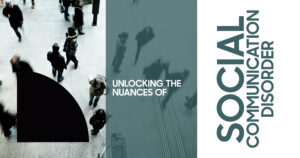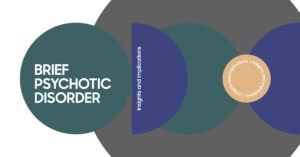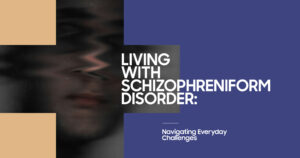Delusional disorder is a serious mental illness in which a person holds strong false beliefs that are not aligned with reality, even when clear evidence contradicts them. Unlike fleeting misconceptions or everyday misunderstandings, these beliefs are deeply ingrained and can significantly impact a person’s relationships, work, and daily functioning.
Although delusional disorder falls under the category of psychotic disorders, it’s often misunderstood because individuals may otherwise function normally in many aspects of life. Understanding its signs, causes, and treatment options is essential for early intervention and supporting those living with this condition.
Understanding Delusional Disorder
At its core, delusional disorder is characterized by persistent false beliefs that are not explained by cultural or religious norms. These beliefs, known as delusions, can be non-bizarre (involving situations that could be plausible, such as being followed) or bizarre (implausible, such as believing another has replaced one’s organs without leaving a scar).
Unlike conditions like schizophrenia, delusional disorder usually does not involve severe cognitive decline or disorganized thinking. Instead, it is defined by a narrow but unshakable conviction in a demonstrably false belief.
Recognizing the Signs and Symptoms
While delusional disorder may present subtly at first, there are hallmark signs that can indicate its presence. Before listing them, it’s important to note that symptoms often develop gradually, making early detection challenging.
Common signs include:
- Persistent belief in something false or unlikely lasts at least one month.
- Functioning relatively well in other areas of life, apart from the delusion.
- Irritability or defensiveness when the delusion is challenged.
- Possible co-occurrence of paranoia and hallucinations (though less frequent than in schizophrenia).
- Mood changes, such as anxiety or depression, stem from the delusional belief.
Delusional Disorder vs. Other Psychotic Disorders
To understand delusional disorder better, it helps to see how it differs from other mental illnesses involving psychosis and false beliefs.

The following are the differences between delusional disorder and other psychotic disorders
| Feature | Delusional Disorder | Schizophrenia | Schizoaffective Disorder |
| Core Symptom | One or more persistent delusions | Delusions, hallucinations, and disorganized thinking | Combination of schizophrenia symptoms + mood disorder |
| Functioning | Often relatively preserved outside delusion | Markedly impaired across most areas | Impaired during mood episodes |
| Hallucinations | Rare or mild, related to delusion | Common and varied | Common, alongside mood symptoms |
| Duration | ≥1 month | ≥6 months | ≥1 month with mood episodes |
| Thought Disorder | Typically absent | Common | Common |
The Role of Cognitive Distortion in Delusional Thinking
Delusional beliefs don’t appear in a vacuum – cognitive distortions or faulty ways of processing information often maintain them. These distortions lead individuals to misinterpret neutral events as confirming their false beliefs.
For example, someone with a persecutory delusion may see two strangers talking and immediately assume they are discussing a plan to harm them. Over time, this reinforces the delusional framework and makes it harder to challenge.
Types of Delusions and Their Impact on Daily Life
Different delusions can affect individuals in distinct ways, influencing relationships, career, and overall quality of life. Before presenting the list, it’s worth noting that these delusions often come with intense emotional distress. According to the National Institute of Mental Health, delusional disorder is relatively rare, affecting about 0.02% of the population, and tends to appear in middle to late adulthood.
Common types of delusions include:
| Type of Delusion | Description |
| Persecutory Delusions | Believing one is being followed, harassed, or plotted against. |
| Grandiose Delusions | Believing one has exceptional abilities, fame, or power. |
| Erotomanic Delusions | Believing someone, often of higher status, is in love with them. |
| Somatic Delusions | Believing one has a physical defect or medical condition. |
| Jealous Delusions | Believing a partner is unfaithful without proof. |
| Mixed Delusions | A combination of multiple types. |
Diagnostic Process: Identifying Delusional Disorder
Diagnosing delusional disorder requires a thorough evaluation by a qualified mental health professional. This process typically includes:
- Comprehensive Clinical Interview: Exploring the nature, duration, and impact of beliefs.
- Medical Examination: Ruling out neurological conditions or substance-induced symptoms.
- Psychological Assessments: Identifying patterns of thinking and ruling out other psychiatric disorders.
Managing Delusional Disorder Through Treatment
Treatment for delusional disorder often involves a combination of psychotherapy, medication, and supportive interventions. While challenging, effective management can significantly improve the quality of life and reduce the intensity of delusional thinking.
Here’s a closer look at evidence-based treatment approaches in table form:
| Treatment Approach | Purpose | Benefits |
| Cognitive Behavioral Therapy (CBT) | Identifies and challenges cognitive distortions and unhelpful beliefs. | Improves reality testing, reduces distress, and enhances coping strategies. |
| Medication (Antipsychotics) | Targets chemical imbalances linked to psychosis. | Decreases delusional intensity and frequency. |
| Supportive Therapy | Provides emotional support and practical coping skills. | Improves self-esteem, reduces isolation, and encourages treatment adherence. |
| Family Therapy | Educates family members on the disorder and healthy communication. | Reduces conflict, builds supportive home environments. |
Addressing Paranoia and Hallucinations Effectively
Paranoia and hallucinations, while less common in delusional disorder than in schizophrenia, can still occur and intensify distress. Managing these symptoms involves:
- Helping the person focus on the present moment to reduce anxiety.
- Ensuring consistent use of prescribed antipsychotics.
- Identifying and avoiding situations that heighten paranoia.
- Providing safe spaces to discuss fears without judgment.
Get Professional Help at Treat Mental Health
Living with delusional disorder can be overwhelming—not only for the person experiencing it but also for their loved ones. At Treat Mental Health, we specialize in accurate diagnosis, individualized treatment plans, and compassionate care tailored to each patient’s needs.
If you or someone you care about is struggling with persistent false beliefs, paranoia, or other symptoms of psychosis, help is available.
Contact Treat Mental Health today to schedule a confidential consultation and take the first step toward recovery.

FAQs
- What are the key signs and symptoms of delusional disorder, and how do they relate to paranoia and hallucinations?
Key signs include persistent false beliefs lasting at least one month, irritability, and defensiveness when challenged. Paranoia is common, and mild hallucinations may occur, but are usually connected directly to the delusion.
- How can one differentiate delusional disorder from other mental illnesses that involve psychosis and false beliefs?
Delusional disorder typically involves one or more focused delusions without significant disorganized thinking or widespread functional decline. In contrast, conditions like schizophrenia present with broader cognitive and behavioral impairments.
- What is the role of cognitive distortion in the development and maintenance of delusional disorder?
Cognitive distortions cause individuals to misinterpret neutral events as proof of their false beliefs, reinforcing the delusion. These faulty thought patterns make it challenging to replace beliefs with reality-based thinking.
- What are the common types of delusions associated with delusional disorder, and what impact do they have on daily life?
Types include persecutory, grandiose, erotomanic, somatic, jealous, and mixed delusions. They can lead to strained relationships, work disruptions, and significant emotional distress.
- What are the available diagnostic procedures and treatment options for managing delusional disorder effectively?
Diagnosis involves clinical interviews, medical assessments, and psychological evaluations. Treatment may include CBT, antipsychotic medication, supportive therapy, and family counseling to improve functioning and reduce symptom severity.








